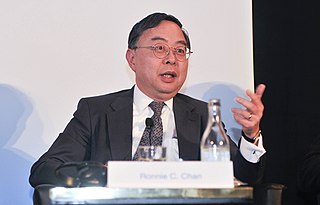A Quote by Ronnie Chan
I've always been pessimistic about China. I can't see China going on without economic or social issues.
Related Quotes
Just as it wouldn't be right to only to have an economic dialogue with China, equally you shouldn't restrict your dialogue solely to issues around, say, human rights. You can raise all those issues, and that is what reflects a mature discussion. So I don't think essentially we have to choose between being partners in China's economic development and being proud defenders of British values.
The China of the 1970s was a communist dictatorship. The China of the twenty-first century is a one-party state without a firm ideological foundation, more similar to Mexico under the PRI than Russia under Stalin. But the measurement of the political and the economic evolution has not yet been completed, and is one of the weak points of the system.
My grandfather was originally from the south of China before he emigrated to Malaysia pre-World War II. And I wanted to learn more about the history of the country of my ancestors. I knew I wanted a narrative set in contemporary Beijing. I was really interested in the effect of the rapid social and economic change on ordinary citizens in China.
The BRIC countries - Brazil, India, China, Turkey, South Africa, Indonesia even, and Russia - are now new actors. Over the last eight years, China multiplied by seven its economic presence and penetration in the Middle East. And if this happens on economic terms and there is a shift towards the East, the relationship between these countries and Israel is completely different from the United States. And it means that the challenges are going to be different, because China is not supporting Israel the way the U.S. are supporting Israel.
There's this long history of colonialism and the colonial gaze when applied to matters related to China. So a lot of conceptions about China in literary representations in the West are things you can't even fight against because they've been there so long that they've become part of the Western imagination of China.
If China stood on an equal basis with other nations, she could compete freely with them in the economic field and be able to hold her own without failure. But as soon as foreign nations use political power as a shield for their economic designs, then China is at a loss how to resist or to compete successfully with them.
China reformed its state sector before, in the late 1990s. Tens of millions were laid off at the time. That was scary and we had warnings of social unrest. But it did not happen. Instead, there was a restructuring in our economic system. I am not sure if China will follow a Western playbook in this respect.


































